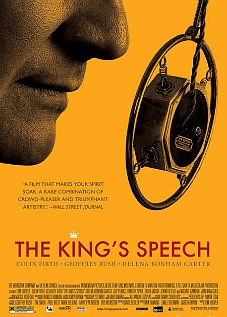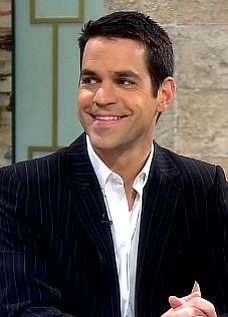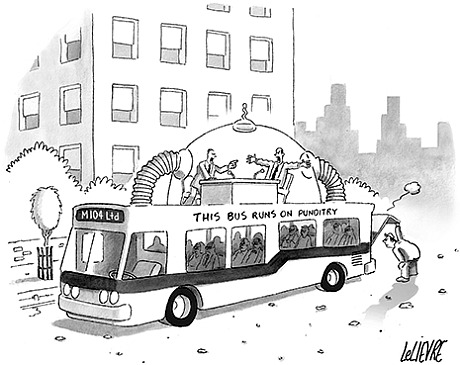I would have edited out the portion in which I get on the L train, but it should be noted that the elderly bum lying sideways on the seat like a dead seal (i.e., briefly glimpsed) smelled of rank intestinal substances, which is why no one was sitting near him. Thank God the aroma was diluted somewhat by other bodies and scents, but this, ladies and gentleman, is the New York subway system at times. The smellies do what they want.
Actual Winklevii
Tyler and Cameron, the Harvard Connection guys, have spoken to the N.Y. Times. Same old tune, we want more money than what we got…waahhh. “It shouldn’t be that Mark Zuckerberg gets away with behaving that way,” “They didn’t fight fair,” “Mark stole the idea,” “What we agreed to is not what we got,” etc.

Tyler Winklevoss (l.), Cameron Winklevoss (r.).
Snapping Point
A.O. Scott‘s 1.2.11 N.Y. Times piece on Black Swan, “a leading candidate for the most misunderstood film of 2010,” and especially Natalie Portman‘s lead performance makes for very stirring reading. He seems to really get into the scheme of it, the duality and the conflict in Darren Aronfosky‘s melodrama of meltdown.
Add this to Manohla Dargis‘s 12.3 review and two of my own riffs — “Effing Brilliant,” my Toronto Film Festival review, and an early December piece called “Swans and Fables” — and there’s plenty to kick around.
Portman, says Scott, seems “to be participating in the invention of a new kind of screen performance. In its various iterations, the Method has been about using voice and gesture to express a character’s deep psychological truth. Ms. Portman, like other young actors working with filmmakers who emphasize the visceral and the immediate, seems almost to reverse this process. Nina’s psychological state is evidently part of the artifice of Black Swan, but her body, subject to unimaginable (and sometimes unreal) mutations and mutilations, is the film’s ground zero of authenticity.
Portman “succeeds in erasing the boundary between reality and fantasy…by hurling herself, with reckless conviction, into Nina’s world and becoming both the monster and the victim in this horror movie.
“Which is another way of saying that she is both the black swan and the white, both the perfectly controlled performer and the pure creature of instinct. We can assure ourselves that Nina does not really turn into a bird. We also know, being sane and disciplined moviegoers, that Ms. Portman — pregnant and engaged (to the movie’s choreographer) and happy in the wake of her latest professional triumph — is not Nina Sayers. But we also know, on the irrefutable evidence of our own eyes, and the prickly sensation of our skin, that she is.”
Talk to the yentas! They don’t feel they’re misunderstanding Black Swan at all. They feel on some gut level that they understand it all too well. Which they don’t or can’t. Not really, I mean. Which is too bad. Because I for one would be at peace if Black Swan beat out The Social Network for Best Picture. I know this can’t and won’t happen. But what a shame. Because Black Swan has the leaping emotion that The Social Network lacks — it’s a full emotional boat, the kind of thing that rises and crashes and washes over like great wave.
Cheaters
I’ve been wrestling with Ron Howard‘s The Dilemma for 10 months, or since I first read an October 2009 draft of Allen Loeb‘s script, which was initially called Your Cheating Heart, a.k.a. Untitled Cheating Project. I didn’t agree with the basic set-up, which is that a semi-mature male in his 40s would be on the fence about whether to tell his best friend that his wife may be playing around. Friends always wise each other up. Anyone who would dither and/or procrastinate about levelling with a pal is no pal — it’s that simple.
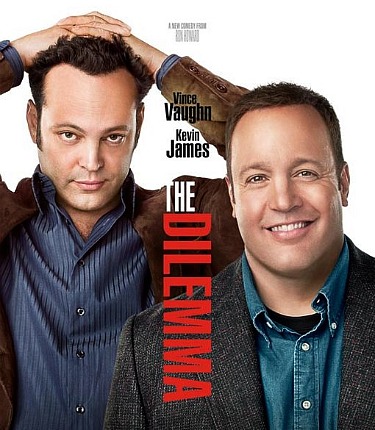
The Dilemma shot last summer in Chicago and is now about to open on 1.14.14, or two weeks hence. Last October’s “gay” terminology dustup is over and done with, but no one’s seen the film yet…to my knowledge.
Right now I can say only one thing for sure, which is that Vince Vaughn and Steve James look a lot slimmer in the Dilemma one-sheet than they do in the film. They play a couple of extra-beefy auto designers who’ve hooked up with two svelte brunettes — James is married to Winona Ryder and Vaughn is living with Jennifer Connelly. (That’s believable, right?) Anyway, Vaughn seems to be somewhere between his Wedding Crashers and Swingers appearance, and James hasn’t been this slim since high school.
Vaughn and James “will play Chicago-based engine designers Ronnie Valentine and Isaac Backman,” I wrote last February. “Their significant others are Connelly’s Beth (Ronnie’s live-in girlfriend) and Ryder’s Geneva (Isaac’s wife). The central tension is about Ronnie accidentally discovering that Geneva is playing around on Isaac, and the anxieties and trepidations that stem from his not knowing what to do. Should he just blurt out the bad news to Isaac, his business partner and longtime best friend? And if he does, will Isaac somehow blame him for Geneva’s betrayal? Or should he mind his own business and stay out of the lives of others?
“I was immediately repelled by Ronnie’s response because — hello? — there’s only one thing to do. In such a situation his loyalty would be to his longtime friend, not the wife, and so one way or the other he’d have to share what he suspects. No right guy would have to think about this. He’d start out by stressing to his pal that he doesn’t really ‘know’ anything but that he’s seen something disturbing and that maybe something’s up and maybe not. And then he’d suggest that the friend might want to hire a shamus to learn the facts or whatever. But come what may you must share what you’ve seen and/or suspect.
“The fact that jabbering Ronnie — a guy who’s in denial about almost everything, and who fibs all the time like Alibi Ike and has trust issues with everyone — hems and haws throughout the story is infuriating. By my sights the guy has no convictions or cojones, and who wants to spend 110 minutes with a 13 year-old who mostly goes ‘homina-homina-homina’ when faced with a serious issue?”
The Dilemma is junketing in Chicago next weekend. I’m told that the first Chicago junket screening is on Thursday, 1.6. The first New York media screening is reportedly set for Tuesday, 1.11.
Grit To Win?
David Poland isn’t saying True Grit is beginning to pose a strong threat to The Social Network‘s presumed dominance as a Best Picture favorite. He isn’t saying it’s elbowed aside The King’s Speech and/or The Fighter to become TSN‘s main challenger. He isn’t saying it’s now poised to overtake TSN. He’s saying True Grit “has muscled its way into the frontrunner slot to win Best Picture.”
Because, you know, he’s been talking about Grit‘s Best Picture inevitability for a while now but primarily because the gnarly Coen brothers western is expected to make $90 million domestic by the end of the holidays.
Poland needs an “anything but The Social Network” movie to champion, and he’s given up on The King’s Speech‘s ability to stay the course (as well as the other alternate contenders) and True Grit‘s surprisingly strong revenues have convinced him that this is the horse to ride. That’s all that’s going on here. Poland being Poland and attempting a last-ditch TSN takedown.
This will be the second time during the 2010 Oscar season that the Poland Curse has struck, the first being when MCN’s founding rabbi stuck a shiv into Mark Romanek‘s Never Let Me Go by calling it “a masterpiece…smart and demanding and emotional and rigorous and profoundly artful.” That, as most of us instantly knew, was the end of that. And now True Grit, its Best Picture chances almost certainly diminished by this.
True Grit‘s box-office may well result in a Best Picture nomination along with a Best Director and Best Adapted Screenplay nom for the Coens, and possibly even a Best Director acting nomination for Jeff Bridges (“arrrrghh gaahrrr muuhrrrarrg”). But as Coming Soon‘s Ed Douglas wrote this morning, Grit “will lose screenplay to TSN‘s Aaron Sorkin and directing probably to David Fincher and acting to Colin Firth…its best bet right now is to finally give Roger Deakins his much-dserved cinematography Oscar.”
In Contention‘s Kris Tapley has also noted that True Grit hasn’t much hope on the Best Picture front Not “without a SAG ensemble nod…tough one to overcome.”
The best response to Poland’s piece came from “Loyal” at 10: 29 am: “I think a more likely scenario is that True Grit‘s financial success splinters the ‘I like this film more than The Social Network‘ vote even further and actually helps The Social Network win. You now have the Black Swan camp and the Toy Story 3 camp and the Inception camp and The King’s Speech camp and the True Grit camp all vying for the same piece of the pie and trying to topple The Social Network. It far easier to chose between two films than it is six films.”
Forerunner
Bertie and Elizabeth: The Reluctant Royals played on Masterpiece Theatre in ’02 and came out on DVD in ’05. It acknowledged Bertie’s speech impediment but didn’t, to judge by reviews and comments, make a big deal of it. It was more about a couple that wasn’t exactly cut out for Buckingham Palace being thrust into it by fate and circumstance. It’s on Netflix Streaming. I suppose this one time I can put aside my dislike of watching films on my Powerbook.
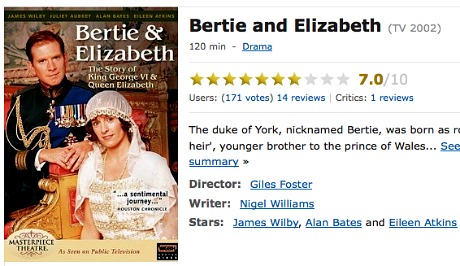
Accreditamento Dove Debito
It’s odd that the front cover of the Italian Bluray of Il Grande Lebowski says “un film di Joel Coen.” What about co-director Ethan? Typos are ubiquitous but how did this find such prominent placement? The IMDB says Joel and Ethan co-directed, and everybody knows the score regardless.
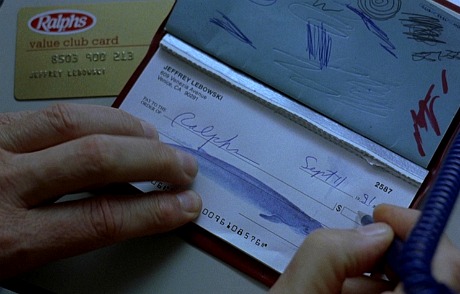
Swarthy Scenery Swallowers
Some kind of ridiculous fever got into the systems of certain fair-skinned actors of yore when they applied face-paint and pretended to be ferocious African or Middle-Eastern or Indian warlord types. I’m thinking of Laurence Olivier as the Madhi in Khartoum, Herbert Lom as General Ben Yusuf in El Cid, and Eduardo Cianelli‘s Thuggee “guru” in Gunga Din.
Their performances were campy and racist in a kind of minstrel-show way, but they were so outlandish their performances went beyond the mere chewing of scenery. They didn’t inhabit the realms of excess and absurdity — they feasted on them. They made demonic possession almost into a form of comedy…but not quite.
Many of today’s boomer-aged neocons probably received their first images of aggressive Islamic fundamentalist wackjobbery from Olivier and Lom’s brown-skinned messengers of Allah.
I’m not sure when white actors began to think better of playing African or Middle-Eastern guys, but I think it was sometime in the late ’70s. The last time a major actor dared to pull it off was when Sean Connery played Mulai Ahmed er Raisuli in The Wind and the Lion (’75). I do recall that Alec Guiness‘s portrayal of an Indian wise man named Godbole in A Passage to India (’84) was seen as fairly ridiculous.
Last Tribute
I never said a word about Lance Daly‘s Kisses after my one and only posting on 7.7.10, and I’m feeling a little bit bad about this. I gave it a hug review and then stayed away. That’s because (a) it has a couple of issues and (b) it had been shot four years previously and felt a bit dated. But it’s still one of the most affecting little films I saw all year, and I need to give it a final air-kiss before pushing on.
Kisses is an Irish kids-on-the-run film — an affecting, natural-vibey “little romance” blended with adventure and dream-music and innocence-meets-bravery moments.
For my money the barely pubescent leads, Shane Curry and Kelly O’Neill (10 or 11 during shooting) gave the most unaffected and emotionally sincere performances of unhappy kids I’d seen in a long, long while. The shooting and cutting are mostly lean and down to the bone (except during the occasional seizure of the “cutes”). And Daly’s going from black-and-white to sepia-toned color to full color and back to monochrome again is…okay, obviously the old Wizard of Oz playbook, but for my money Daly makes it work all over again.
Kisses is very worth seeing, definitely above average, among the best I’ve seen this year and thank God for the occasional subtitles. (There’s really no understanding the Dublin accents without them.)
“It may seem too inside-baseball to go off on this,” I wrote last summer, “but it does feel a bit funny to call Kisses a 2010 film considering it was shot between late ’06 and ’07, premiered at Telluride and Toronto almost two years ago, is regarded by the IMDB and Rotten Tomatoes as a 2008 film, and played theatrically in England last summer.
“For whatever reason I missed Kisses at Toronto’s ’08 festival. I don’t even remember hearing about this occasionally twee but natural-vibey Irish kids-on-the-run film, but whatever — Oscilloscope Laboratories saw it, got it and acquired it for theatrical. And then sat on it for the better part of two years.
“Kisses scored an 83% positive when it opened in England in the summer of ’09, but still no Oscilloscope action. It’s finally beginning a city-by-city break on 7.16 and good for that, but — I know I shouldn’t be harping on this so much — the time-passage element makes it’s hard to feel the full-on jazz.
“Curry and O’Neill were 10 or 11 at the time, and are now 14 or 15 and several inches taller, I was told after last night’s screening. Jett commented as we were leaving that the roller-wheel sneakers the kids buy at a Dublin mall during the film’s second act were happening about four or five years ago, but no longer.
“It’s stuff like this that slightly ages a film, sometimes in ways you can spot and sometimes in ways that you can’t; it also underlines a point I made a year or two ago that you need to get a film into commercial circulation no later than 18 months after filming, and preferably within a year. There has to be a feeling that the audiences seeing a film at a given point in time are sniffing the same cultural pollen that the filmmakers did when they did principal photography. I mean, this film was shot well before anyone was even starting to talk about Barack Obama being a semi-credible candidate for the Democratic nomination.”
Kisses is available on Netflix streaming, but not, as far as I can discover, Amazon.
Stand-Up Guy
Where would The King’s Speech be in the Best Picture race, impressionistically-speaking, without Entertainment Weekly‘s Dave Karger? The entire King’s Speech bandwagon, face it, is more or less depending on Karger’s allegiance. Okay, he’s not the only fellow with his finger in the dyke, but in the wake of Karger’s recent toe-to-toe with Awards Daily‘s Sasha Stone it sure seems that way. Karger holds firm, mans up, refuses to turn tail, etc.
